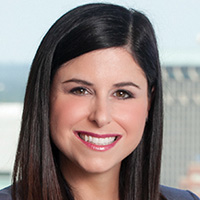7 Financial Don’ts for Every Millennial
Here are the seven things that millennials should absolutely stop doing to get their financial plans on track.

Profit and prosper with the best of Kiplinger's advice on investing, taxes, retirement, personal finance and much more. Delivered daily. Enter your email in the box and click Sign Me Up.
You are now subscribed
Your newsletter sign-up was successful
Want to add more newsletters?

Delivered daily
Kiplinger Today
Profit and prosper with the best of Kiplinger's advice on investing, taxes, retirement, personal finance and much more delivered daily. Smart money moves start here.

Sent five days a week
Kiplinger A Step Ahead
Get practical help to make better financial decisions in your everyday life, from spending to savings on top deals.

Delivered daily
Kiplinger Closing Bell
Get today's biggest financial and investing headlines delivered to your inbox every day the U.S. stock market is open.

Sent twice a week
Kiplinger Adviser Intel
Financial pros across the country share best practices and fresh tactics to preserve and grow your wealth.

Delivered weekly
Kiplinger Tax Tips
Trim your federal and state tax bills with practical tax-planning and tax-cutting strategies.

Sent twice a week
Kiplinger Retirement Tips
Your twice-a-week guide to planning and enjoying a financially secure and richly rewarding retirement

Sent bimonthly.
Kiplinger Adviser Angle
Insights for advisers, wealth managers and other financial professionals.

Sent twice a week
Kiplinger Investing Weekly
Your twice-a-week roundup of promising stocks, funds, companies and industries you should consider, ones you should avoid, and why.

Sent weekly for six weeks
Kiplinger Invest for Retirement
Your step-by-step six-part series on how to invest for retirement, from devising a successful strategy to exactly which investments to choose.
How time flies. The oldest millennials are turning 40 this year, a big milestone for many reasons – including financial planning.
Despite working through the Great Recession and the COVID-19 pandemic, many millennials are making solid strides in their finances. Bank of America’s recent Millennial Report shows that 73% of millennials are actively saving and one in four has accumulated more than $100,000. On the flip side, the survey found that 27% are not saving at all. And more than three-quarters are weighed down by debt, with one in six millennials owing $50,000 or more, excluding home loans.
Whether you are on the right track or need some help getting started, it’s good to have a plan in place. Here are seven things to stop doing so our fellow millennials move in the right direction:

Don’t Get Caught Up in the Headlines – Think Long-Term.
Don’t let the GameStop-type stocks, cryptocurrencies, Reddit and other get-rich-quick headlines run your investment portfolio. While you may get lucky and buy a stock at the right time, it’s just as likely you will make a costly mistake and lose money instead of get rich quick.
The way to build lasting wealth is save early and often and invest wisely in a well-diversified portfolio. Understand your investments, or work with someone who does understand investments.
We had a client who came to us after losing a chunk of their savings to speculative investments. We recommended they set up a very small sandbox account where they could continue picking stocks on their own, and left their long-term money alone to a more disciplined approach.

Don’t Forget about an Emergency Fund. Don’t Give Up on Cash.
It’s important to keep a stash of cash in the bank for an emergency. You never know when you might find yourself without an income or in need of some quick cash. Don’t worry about how little interest your cash is earning right now; liquidity is the most important feature.
We met with someone who was using a credit card charging 20% in interest as their emergency fund. We quickly advised them to change this tactic, as it was working against their financial plan. Instead, we recommend having at least three to six months’ worth of living expenses set aside in cash for the unexpected car repair or other surprise expense.

Don’t Only Save Into Your 401(k) for Retirement. Do More.
Saving the maximum amount in a 401(k) or other similar retirement plan is a great start, but try to do more. For example, open a traditional Individual Retirement Account (IRA), a Roth IRA or a brokerage account. The first two will supplement a retirement savings account, while a brokerage account provides flexibility if funds are needed before you turn 59 ½ years old. Many millennials hope to retire before reaching that age and will need a source of money to pay for their living expenses.

Stop Putting All Your Eggs in 1 Basket. Diversification is the Key to Investing Success.
Many people who work for a publicly traded company own a significant amount of company stock. Many companies promote this practice and may even provide 100% of matching 401(k) funds in company stock.
However, be cautious not to be overweight in any single stock in your investments. Although you may feel incentivized to help your company grow when you are “all-in,” remember that your paycheck and benefits already depend on the company’s performance. Your entire nest egg shouldn’t be invested in that company as well. Instead, our general advice is to invest no more than 10% to 15% of a person’s investment portfolio in any one company – including their own employer.
We had a prospective client a few years ago who had been nearly 100% invested in their company stock for over 30 years in their 401(k), and the stock had not performed well. It was sad because their 401(k) could have been worth over eight times its current value had they diversified.

Stop Putting Off Your Will and Life Insurance.
One of the most notable changes for the oldest millennials is that the feeling of invincibility starts fading. But many young individuals and families have put off some crucial decisions because of the uncomfortable nature of the topic. However, life is unexpected, and planning for the worst-case scenarios is especially important because only you can do it — and you must do it before you need it.
Work with an estate planning attorney to get a will, powers of attorney and health care directives in place. This will make future decisions much easier if you become incapacitated or pass away. Next, work with an independent insurance broker to make sure you have adequate life and disability insurance coverage to provide for your family.

Don’t Try to Keep Up with the Joneses.
Most millennials have 24/7 exposure to their friends’ every move through social media, including their perceived wealth. The fastest way to lose your wealth (or prevent having any) is to spend it all trying to keep up with your friends. If you have been spending at or above your income level through your 20s and 30s, now is the time to break that habit.
The No. 1 key to long-term financial success is spending less than you make. If you do that for long enough and save the difference wisely, you will afford yourself more options and flexibility in the future. We have had many clients be successful with the “out of sight, out of mind” method. They pay themselves first through their savings, 401(k), brokerage accounts and spend only what is left.

Don’t Procrastinate – Be Deliberate.
We have had a number of clients come to us wishing they had gotten their plan together sooner. They had such regret that they didn’t get it together in their 30s or 40s. Learn from their mistakes.
Stop thinking you have more time. Take a small but deliberate step today toward a better financial future. Putting even just a little bit aside every paycheck will produce results. For the long term, begin to set some priorities. If owning a home is a priority, begin researching how much will be needed for a down payment and develop a plan to save that amount.
Much like your family or career, it takes time and energy to develop and implement a financial plan. Take the time now to get started or re-evaluate the strategy you have in place. It’s hard to believe, but 50 isn’t that far off, so planning for your financial security needs to start now.
Profit and prosper with the best of Kiplinger's advice on investing, taxes, retirement, personal finance and much more. Delivered daily. Enter your email in the box and click Sign Me Up.

Patricia Sklar is a wealth adviser at CI Brightworth, an Atlanta wealth management firm. She is a Certified Public Accountant, a CERTIFIED FINANCIAL PLANNER™ practitioner and holds the Chartered Financial Analyst® designation. Sklar uses her CPA and investment background to help develop and implement financial planning strategies for high-net-worth and high-income earning individuals.
-
 Nasdaq Leads a Rocky Risk-On Rally: Stock Market Today
Nasdaq Leads a Rocky Risk-On Rally: Stock Market TodayAnother worrying bout of late-session weakness couldn't take down the main equity indexes on Wednesday.
-
 Quiz: Do You Know How to Avoid the "Medigap Trap?"
Quiz: Do You Know How to Avoid the "Medigap Trap?"Quiz Test your basic knowledge of the "Medigap Trap" in our quick quiz.
-
 5 Top Tax-Efficient Mutual Funds for Smarter Investing
5 Top Tax-Efficient Mutual Funds for Smarter InvestingMutual funds are many things, but "tax-friendly" usually isn't one of them. These are the exceptions.
-
 Social Security Break-Even Math Is Helpful, But Don't Let It Dictate When You'll File
Social Security Break-Even Math Is Helpful, But Don't Let It Dictate When You'll FileYour Social Security break-even age tells you how long you'd need to live for delaying to pay off, but shouldn't be the sole basis for deciding when to claim.
-
 I'm an Opportunity Zone Pro: This Is How to Deliver Roth-Like Tax-Free Growth (Without Contribution Limits)
I'm an Opportunity Zone Pro: This Is How to Deliver Roth-Like Tax-Free Growth (Without Contribution Limits)Investors who combine Roth IRAs, the gold standard of tax-free savings, with qualified opportunity funds could enjoy decades of tax-free growth.
-
 One of the Most Powerful Wealth-Building Moves a Woman Can Make: A Midcareer Pivot
One of the Most Powerful Wealth-Building Moves a Woman Can Make: A Midcareer PivotIf it feels like you can't sustain what you're doing for the next 20 years, it's time for an honest look at what's draining you and what energizes you.
-
 I'm a Wealth Adviser Obsessed With Mahjong: Here Are 8 Ways It Can Teach Us How to Manage Our Money
I'm a Wealth Adviser Obsessed With Mahjong: Here Are 8 Ways It Can Teach Us How to Manage Our MoneyThis increasingly popular Chinese game can teach us not only how to help manage our money but also how important it is to connect with other people.
-
 Looking for a Financial Book That Won't Put Your Young Adult to Sleep? This One Makes 'Cents'
Looking for a Financial Book That Won't Put Your Young Adult to Sleep? This One Makes 'Cents'"Wealth Your Way" by Cosmo DeStefano offers a highly accessible guide for young adults and their parents on building wealth through simple, consistent habits.
-
 Global Uncertainty Has Investors Running Scared: This Is How Advisers Can Reassure Them
Global Uncertainty Has Investors Running Scared: This Is How Advisers Can Reassure ThemHow can advisers reassure clients nervous about their plans in an increasingly complex and rapidly changing world? This conversational framework provides the key.
-
 I'm a Real Estate Investing Pro: This Is How to Use 1031 Exchanges to Scale Up Your Real Estate Empire
I'm a Real Estate Investing Pro: This Is How to Use 1031 Exchanges to Scale Up Your Real Estate EmpireSmall rental properties can be excellent investments, but you can use 1031 exchanges to transition to commercial real estate for bigger wealth-building.
-
 Should You Jump on the Roth Conversion Bandwagon? A Financial Adviser Weighs In
Should You Jump on the Roth Conversion Bandwagon? A Financial Adviser Weighs InRoth conversions are all the rage, but what works well for one household can cause financial strain for another. This is what you should consider before moving ahead.


